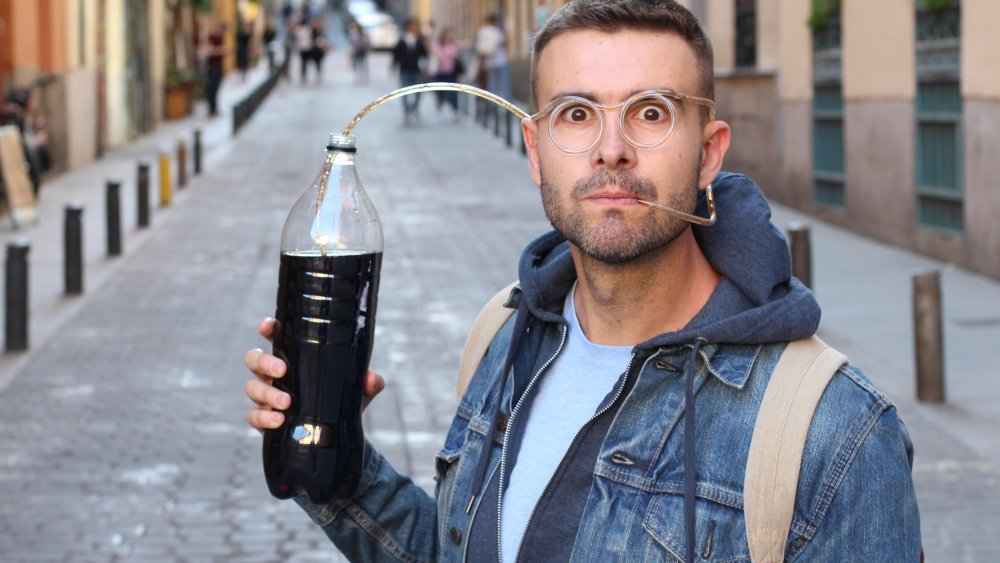The Real Reason There Are Health Concerns Surrounding Coke Zero
Coca-Cola's history is steeped in faulty beliefs about the health benefits of its products. The classic example, of course, is cocaine. The Lemelson-MIT Program notes that Coca-Cola inventor John Pemberton started with a cocaine-infused drink dubbed "Pemberton's French Wine Coca," which he marked as a treatment for nervous disorders. In the wake of an 1885 booze ban in Atlanta, where his business was based, Pemberton switched to selling the alcohol-free but still cocaine-rich Coca-Cola, which was billed as a "brain tonic."
Long after Coca-Cola kicked its coke habit, a different addictive white powder would become the new coke. As Psych Central describes, extremely sugary drinks such as Coke can get people hooked, and those who try to quit cold-turkey can experience withdrawal. The sugar in Coca-Cola-owned products have also led to accusations of deception. For instance, Business Insider relates that in 2009, the company got sued for giving the false impression that its product Vitaminwater — which contained up to 31 grams of sugar — was healthy. Coca-Cola had alleged the beverage "could promote healthy joints, support optimal immune function, and reduce the risk of eye disease" and even gave flavors names like "Revive" (and named its drink after vitamins) but denied implying it was healthy.
One might assume that Coca-Cola dodged a sugary bullet with Coke Zero, what with its lack of crippingly-addictive nasal sugar and dietary sugar. But once again, concerns about substances known to come in white-powder form had people sounding alarm bells.
Why some people think you should drink zero Coke
As Healthline describes, Coke Zero, later rebranded as Coke Zero Sugar, certainly lives up to its name. It swaps out sugar for a cocktail of sweet substitutes, including aspartame and acesulfame potassium. No sugar, no problems, right? No, not so fast. Conflicting scientific evidence has raised concerns that artificial sweeteners may pose some of the same health risks they were meant to prevent. For instance, a string of observational studies spanning between eight and 14 years found that women who drank artificially sweetened beverages showed an overall increased risk of developing type 2 diabetes. However, a different 14-year study showed the opposite result.
While sugary drinks are often treated like a liquid gateway to diabetes, an eight-year observational study concluded that people who consumed more than 21 artificially-sweetened drinks each week practically doubled their risk of becoming overweight or obese. This was despite the fact that participants had reduced their overall daily calorie count. By contrast, participants in a six-month study shed between 2 and 2.5 percent of their body weight drinking artificially sweetened beverages. The human body is complicated, and while the jury is still out on a definitive answer, Coke Zero isn't necessarily a beverage without any health risks.

